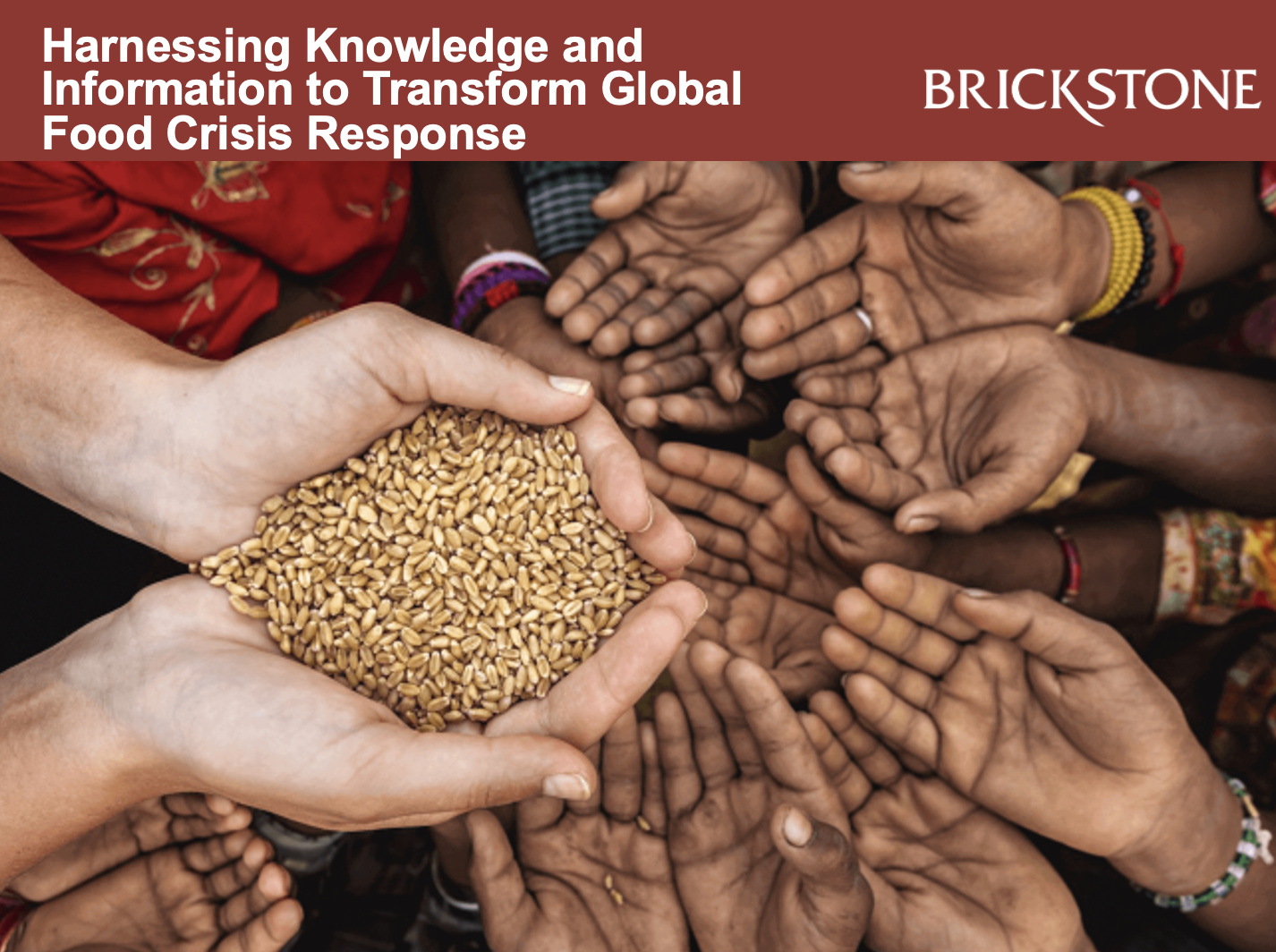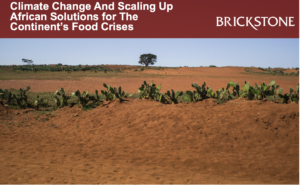Harnessing Knowledge and Information to Transform Global Food Crisis Response
Tackling the severe global food crisis requires a giant leap in resources, over US$90 to US$120 billion per year according to the World Bank latest estiamtes. The first step in getting there is making greater use of the knowledge and resources we already have. Since its launch, the Global Alliance for Food Security (GAFS) has been strengthening knowledge and much needed investments across humanitarian and development partners to address the current food and nutrition security (FNS) crisis. GAFS was established on May 19, 2022 by the Group of Seven (G7) Development Ministers Meeting to catalyze an agile response to the global crisis exacerbated by the war in Ukraine.
This article by Brickstone Africa reviews the World Bank’s publication on how to transform global food crisis responses harnessing knowledge and information.
The Global Alliance for Food Security (GAFS) In Combating Global Food Crisis
GAFS, convened by the World Bank and the 2022 Germany G7 Presidency, has active participation from over 60 bilateral and multilateral humanitarian and development partners, United Nations agencies, regional organizations, governments, and civil society organizations. In November 2022, GAFS launched the Global Food and Nutrition Security Dashboard, which is a one-stop-shop for accessing up to date information on the food crisis as well as financing and responses mobilized across national, regional, and international partners.
The COVID-19 pandemic has cast a harsh light on the fragility of global food systems, pushing an additional 130 million people into acute hunger. This crisis has underscored the need for adaptive, resilient food systems that can withstand unforeseen shocks. It calls for a renewed commitment to international collaboration, innovation, and equitable resource distribution to mitigate the impacts of future crises on food security.
Ensuring that countries are better prepared to respond to future FNS crises is a top priority for GAFS partners. Unfortunately, these crises are likely to increase in frequency as climate-induced weather extremes, conflict, and other drivers remain protracted. Greater crisis preparedness is imperative to prevent and mitigate emergency and famine conditions as well as to limit the impacts on achieving SDG 2 Zero Hunger.
To build greater preparedness to these crises, GAFS is supporting the development of Food Security Crisis Preparedness Plans (FSCPPs) across 25 countries, many of which are considered to be hunger hotspots. FSCPPs are living national plans that define what constitutes a food crisis in a country and detail protocols, roles, and timelines for mobilizing funding and early action across government, humanitarian, and development partners when these crises strike.
In the face of a global food crisis, knowledge is our most potent tool. Harnessing information transforms uncertainty into strategic action, paving the way for a resilient and sustainable food system.
On October 20, 2023, the Global FNS Dashboard launched a new interactive module dedicated to the FSCPPs. This module provides timely and up to date information on the progress made to develop FSCPPs and is a living repository for these plans once endorsed by governments. The Dashboard is also building additional functionality to ‘live track’ actions when FSCPPs are triggered. This, for instance, will enable the timely notification of local, regional, and global partners to raise awareness about the emerging crisis conditions in a country, promote greater advocacy, and encourage the mobilization of additional resources, where possible, across the fullness of the international food and nutrition crisis response system.
This added functionality made possible by the Dashboard helps address several longstanding issues which have prevented the mainstreaming of FNS crisis preparedness. By establishing dedicated and standardized processes for recognizing when a major crisis “tipping point” may be occurring, action and financing can be mobilized earlier and more quickly. This knowledge sharing promotes collective action and joint efforts to maximize the impact of responses.
The early impacts of these efforts are already being seen in several countries. For instance, the FSCPP engagement in Yemen has spearheaded a first-of-its-kind collaboration between the Food and Agriculture Organization (FAO), United Nations International Children’s Fund (UNICEF), World Food Programme (WFP), World Bank, and the Assessment Capacities Project (ACAPS) to develop a new high-frequency food and nutrition security report. Additionally, FSCPPs are supporting the establishment and/or revitalization of senior decision-making structures such as food security councils in Somalia and South Sudan. The Dashboard enables such important developments to be easily accessible far and wide and tracked to keep the drumbeat of progress going on this critical agenda.
Read the complete article here.






